It was a September 30, 2006, Marinette Pichon hung up these crampons not without emotion, having given so much and received football. At almost a year of the World Cup in France, we met her to discuss her career, while she recently published her book "Do not give up". A maxim that allowed him to hang on and live his life fully. In this first part, we talk about his debut in football, his American experience and his current life off the field, although ...
Meeting with Marinette Pichon (2/3): "This championship of France deserves to be developed"
Meeting with Marinette Pichon (3/3): "The potential is there, it is existent and it must be operational."
Soccer Hearts - You stopped playing with boys when you were 16, because you did not have much choice anymore. How did the adaptation with the girls?
Marinette Pichon - The adaptation was quite simple because I continued to train with the boys and I only played matches with the girls, so I was pretty quiet. I continued to be wooed, on all that was speed of execution, technical quality, travel and I transposais all that Sunday with the women of Saint-Memmie [Olympique], so it was going well. The adaptation was very positive and very pleasant in this sense.
CDF - When was your move to 100% female team?
M.P - When I moved in 1994. From there, I will play and train with the club at 100%, I will become a real Mengeotte. The relationships were different, because I had only worked with boys before, so I lived things rather positively and was super happy to be among them. But when I joined Saint-Memmie it was different, I knew them already, except that I went from a status where I came only on Sundays [for matches], to be there at training. We developed certain affinities, [everyone] made friends, we created a kind of cocoon that could not be created when I came only on Sunday. So the integration went well, working in Saint-Memmie too, it was something exceptional to live in terms of human relations.
CDF - What were the difficulties encountered during your debut in football?
M.P - The difficulties were having someone take me to the matches, when I was still training with the boys. Then it was to find a job, because I did not have a diploma, I was not [graduated] very late. Then I had to find a balance away from my family, especially away from my mother and sister. It was for me, not so obvious. Then, having a cocoon and developing affinities with people, supporters, allowed me to feel good, to feel a Mengeotte and then perform on the field. So I did not really have any difficulties.
After I met some when I left for the United States, because there was the language barrier, but it was the distance that was hard to manage. It took me two months to adapt to the United States. Each stage had its difficulties because I went from three training sessions a week, to two workouts a day, I had trouble assimilating the [work] load.
And when I came back [to France] I had to go back to amateur status, combine the work and get back to doing well in the evening [with Saint-Memmie]. There was also a time [complicated to manage], where the president of the club Juvisy [Marinette Pichon will join Juvisy after his second stint in the United States in 2004, ed], Marie-Christine Terroni, will tell me: "If it's not okay, you go back [to the United States] I'll let you go where you want, because I want you to be fine" and I found it very classy on his part, because she could very well have continued to insist. And finally, [I stay with Juvisy] we win a title [champions of France], we win a Coupe de France, we participate in the European Cup, we will live a lot of things.
CDF - Did you have a particular acolyte in Juvisy?
Mr. P. - Yes, with Toto, Laetitia Tonazzi. It made the difference for my arrival at Juvisy because we already saw each other in France. After, we had affinities with other people, but she really was the girl who made me come to Juvisy.
CDF - Is there an anecdote of your visit to Juvisy, who impressed you?
M.P - Training especially. We did not really agree with the coaches [smile] because each time they wanted us to evolve to three attackers, or an attacker and we liked to play two in front. So, every time, we brought back our strawberry [smile]. Each time we shot at each other and we were in solidarity with each other. Sometimes, it animated the training, but we gave our opinion: "We prefer to play there, we can use both the right foot and the left" and they reminded us that it did not work like that. So, it was screaming a little.
CDF - You talked about it briefly, but how was your experience in the United States?
M.P - At the beginning, it happens without me. It's my coach, Mark Krikorian [at the Philadephia Chargers], who will supervise my performances with the France team at the European Championship [2001] in Germany and he will call Babeth Loisel [Bleu des Bleues of the time "I have an attacking profile that I want to recruit and I have two players, your player and Patrizia Panico, Italian international." I would like to know how is Marinette in the life of all days, to the trainings, its state of mind, if it matches [matches], if it is not someone who is harmful to the life of group, if it is someone of positive, who works, if is not a difficult case to manage in short. "
Well I imagine that the return of Babeth was conclusive, since I joined the club. Behind, I will have the first exchange with Elisabeth Bougeard-Tournon, who will "prepare" my departure, study all the clauses of the contract in English, and transpose them [in French] to ensure that we will not do bullshit [on my transfer]. So, it will go on and I began to get a little scared. I did not know the United States, I did not speak English, it is 6000km from France, 6 hours of flight in one direction, 8 hours in the other, it is far. It was hard and the professional world was scary.
Out of curiosity I went to the Women's United Soccer Association (WUSA) website and said, "But wait, they're calling me!" I found it both scary and extremely rewarding. I waited, waited, then finally, after several months of reflections, I will decide to leave. I left [join the Philadelphia club]. I was 25 years old at the time. It was not easy because even if it's a great adventure, it's not easy to leave everyone, to leave a job where I was ...
CDF - Do you have good memories of your visit to the United States?
M.P - I have a wonderful memory of it, both professionally, humanely and culturally. I was really accompanied within the club to integrate and adapt very quickly, with the language already. I was with two Chinese internationals and we did not understand anything at the beginning during language classes. We were banging bars because of that. But in the end the English was perfectly mastered. And when one is implanted in the local culture, when one lives, when one speaks daily, when one is obliged to express oneself, everything comes naturally and it is true that I miss it, because I have a small affection for foreign languages.
CDF - Amandine Henry's experience more recently, is it similar to yours?
M.P - Yes, afterwards it may be a little different [compared to Amandine Henry] because I stayed there for several years, and I think I was the one who stayed there the longest each time. And I was pro, she was not in a professional league, the league is not professional, it's clubs, conferences ... Good after she was titled [with Portland], it's great. For my part I was not titled but I was elected as an individual [best player (MVP) and best attacker in the 2002 season, ed]. The course of all the French players who went to the United States are different and admirable.
CDF - How did you start as a TV consultant?
MP - I joined France TV in 2011, following a call from Claude Eymard, who explained to me that they would launch a device to cover the championship of France D1 and they were looking for a voice, someone one who knows football, who wants to get into the exercise and I was a little dubious, I did not know what to say to them at the precise moment. But we met to discuss this proposal.
We saw each other with François Brabant and Claude Eymard, and this meeting allowed them to "test" me, to know how I was expressing myself, how I spoke, if I had the ease, if I had a facility, knowledge and we endorsed the collaboration like that. The first match was complicated, difficult, because we do not know when we should talk, when you have to discuss [with your co-presenter], when you need to bring your expertise ... Each consultant or consultant has his own method and comments differently or sees football differently. I thrive a lot [at this position of consultant]. There, we arrive in full re-negotiation since the rights were ceded to Canal +, M6, Eurosport, so we will see.
CDF - Do you see yourself doing anything other than TV consultant today?
M.P - I graduated as a manager, to join a club soon, with a project that will interest me. The project must interest me, I do not know if it will be in France, the stranger would try me more in fact. There is also my Football Academy that I want to develop with a real societal implication. But today I got a diploma to have something and if one day I want to put myself on the market, I will do it.
But I would like to keep commenting because I stay in contact [of the field], I saw the trick and then on the European Championship last summer [in the Netherlands, ed] there are matches where my legs hurt, as against Switzerland [the last group match of France, which allowed the qualification in quarter, ed]. I thought I could not walk anymore! Because I was so emotional that we had lactic acid [in the muscles], I think.
I do not want to coach me, I want to manage, I want to do both: administrative and technical. I want to coordinate a technical team, I want to be force of proposal on the administrative, to mount a project, to define a project, to be at +2/3/4 years etc and to reach this objective, but I do not want to train, I have a dirty character (smile). I'm demanding, I think it would be flashing [with the players].
Dounia MESLI





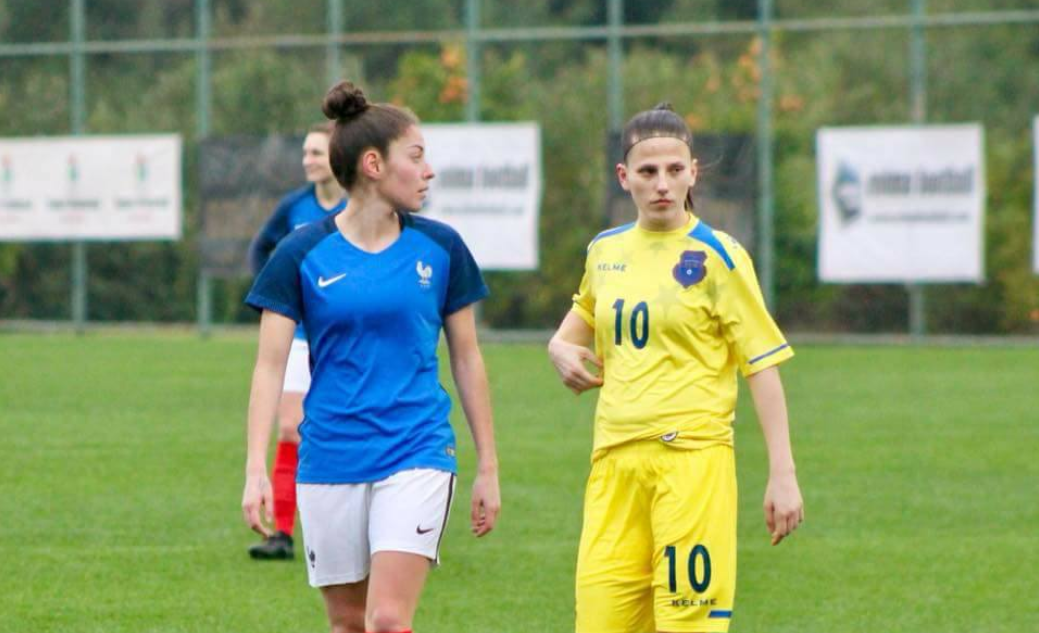
![[UWCL, 1 / 8th finals return] Chelsea puts out Fiorentina, Bayern and Wolfsburg at the rendezvous](/backEnd/images/article/bf6078d9cad58f3ec76f1c6d1562c8df.jpeg)
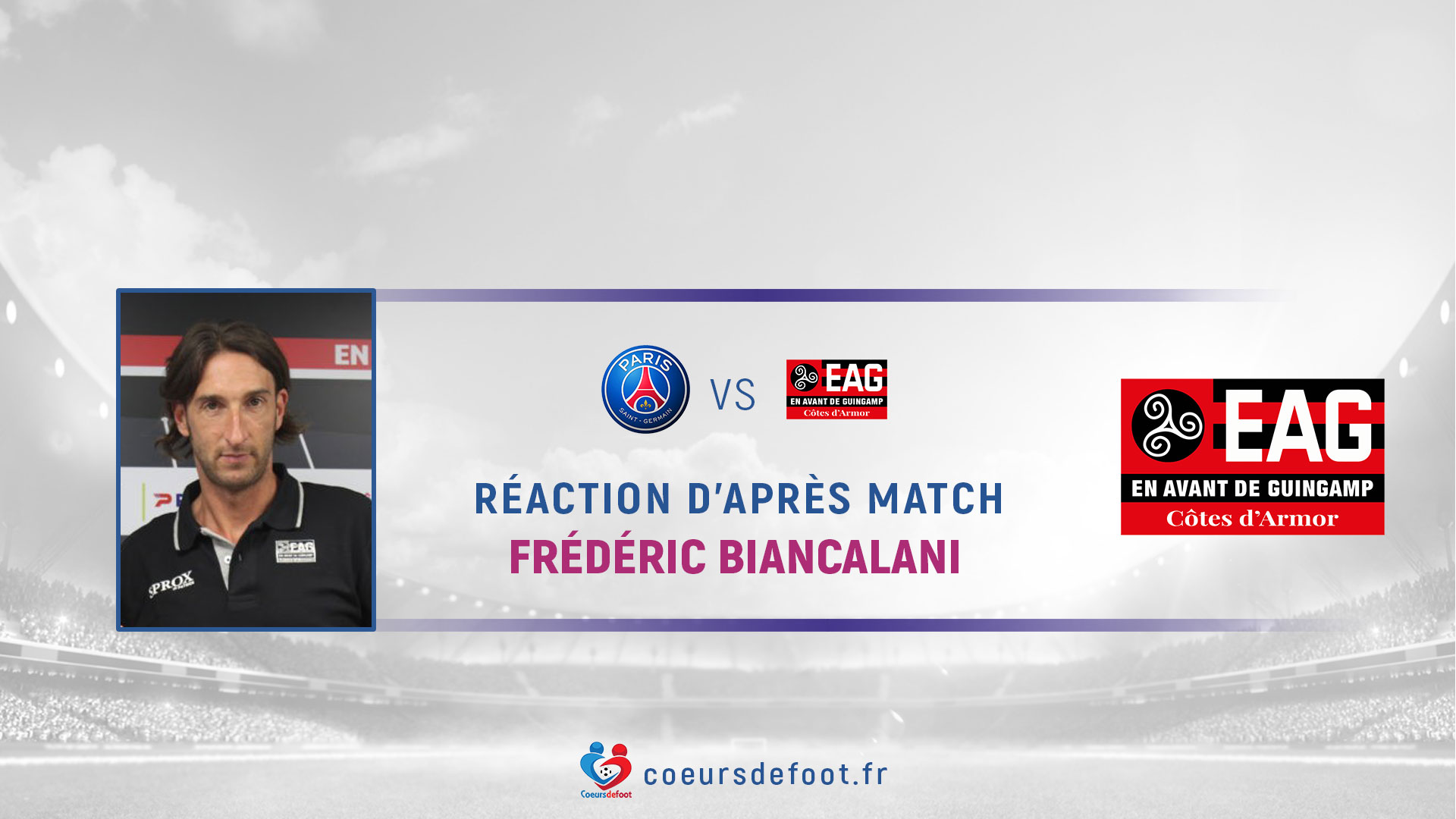
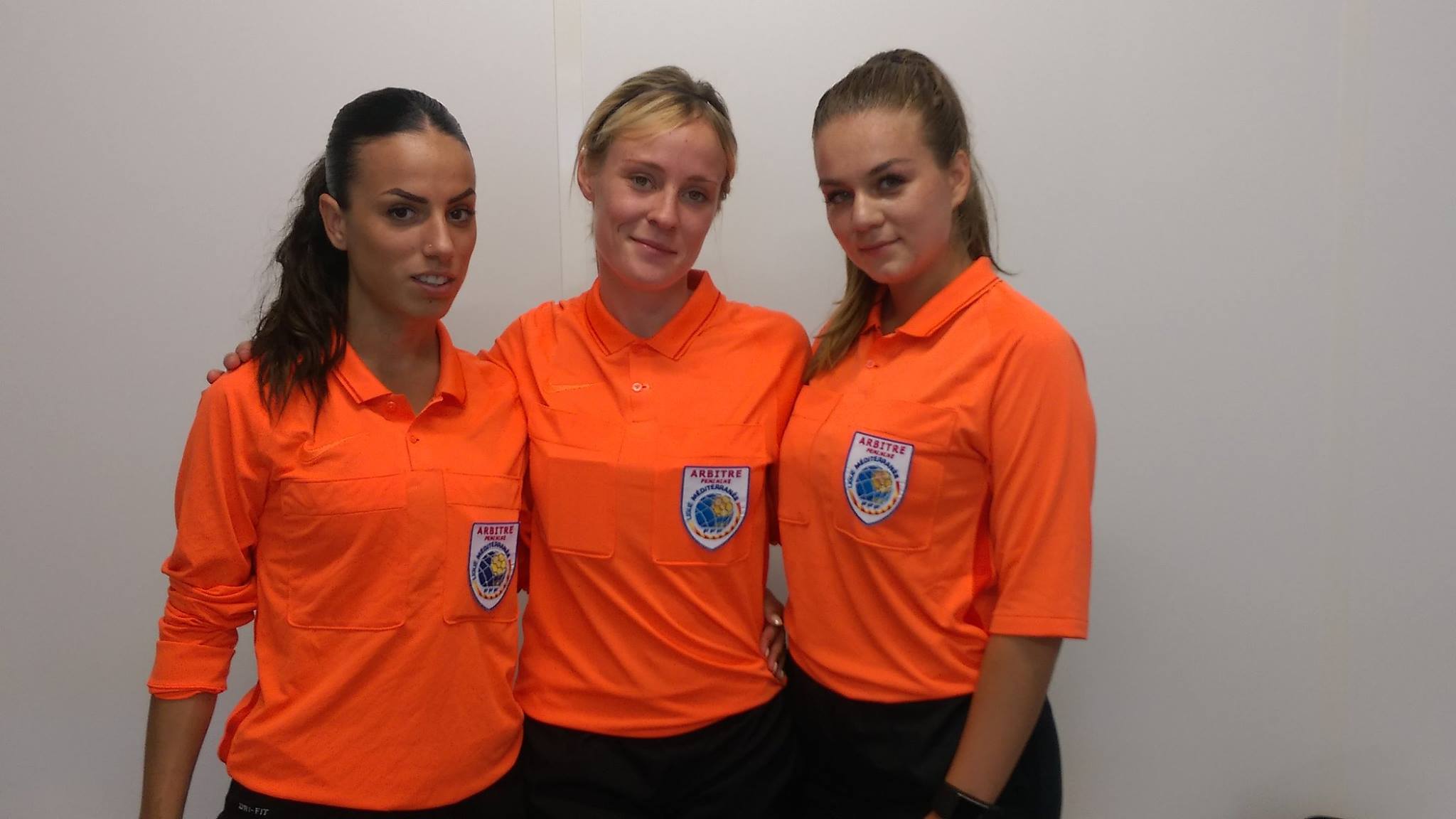
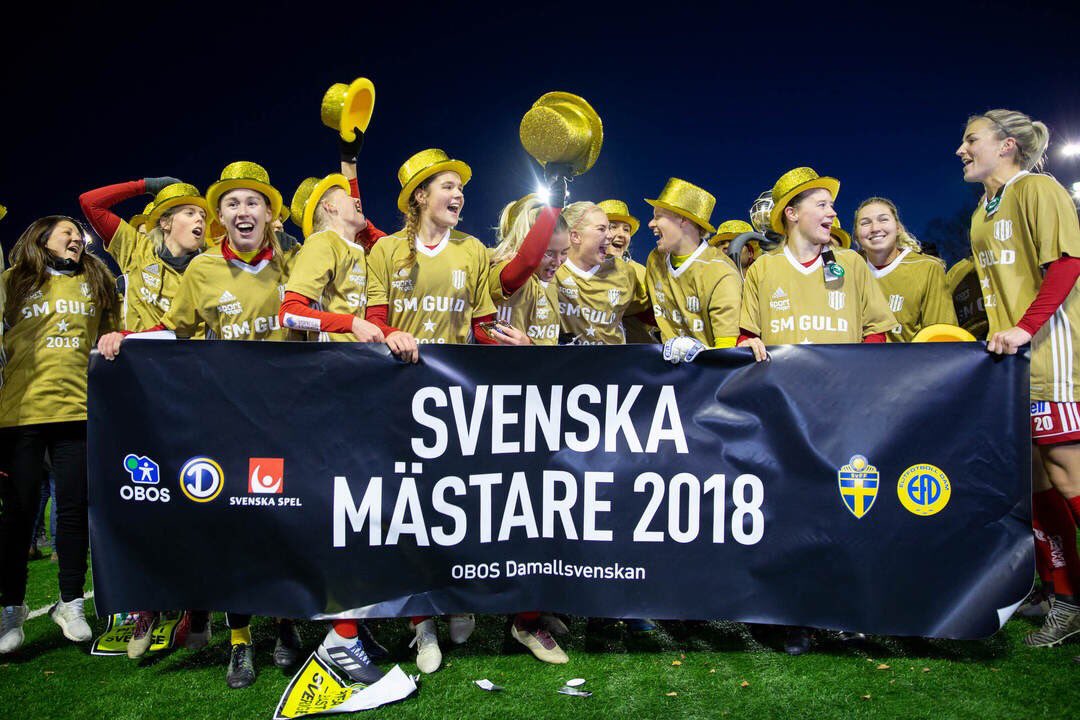
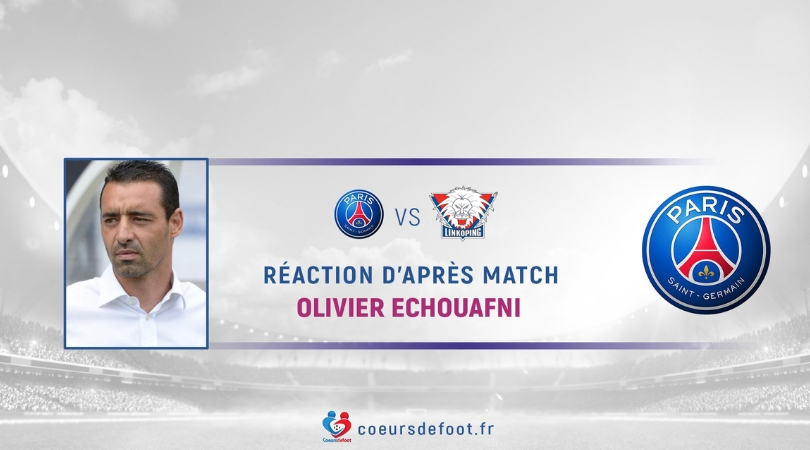
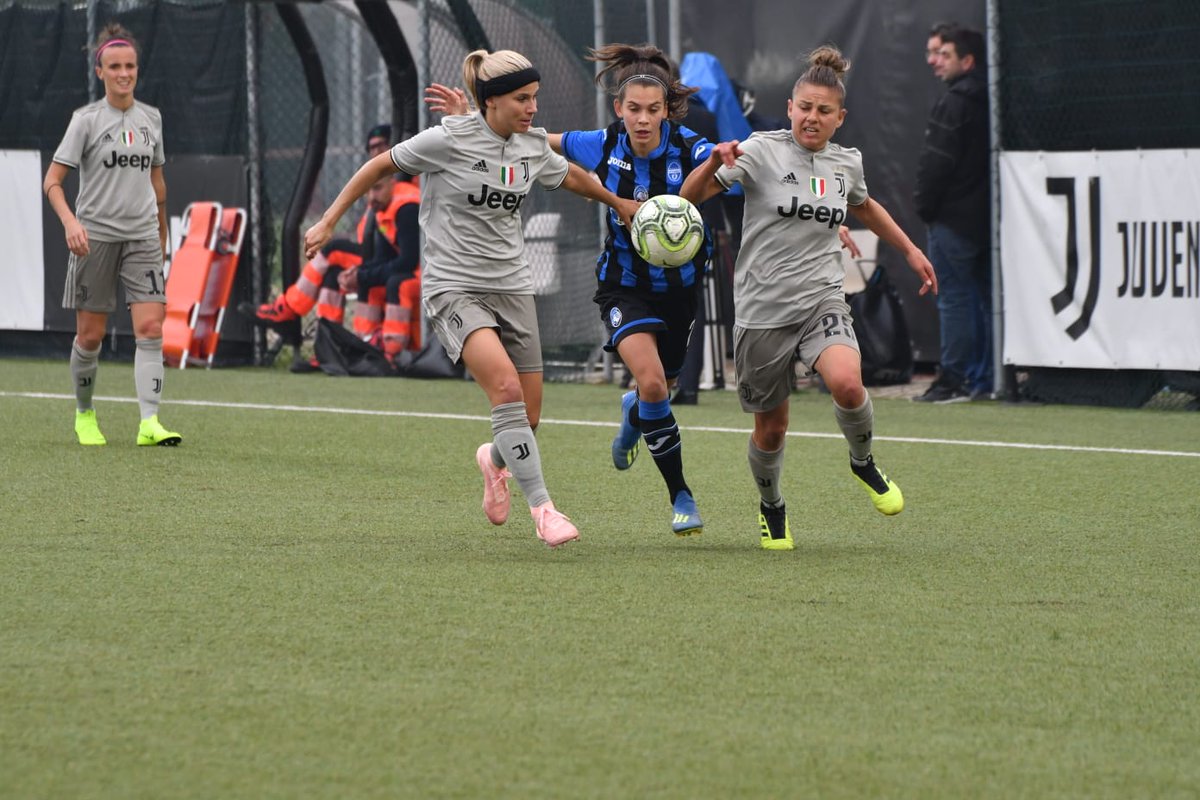
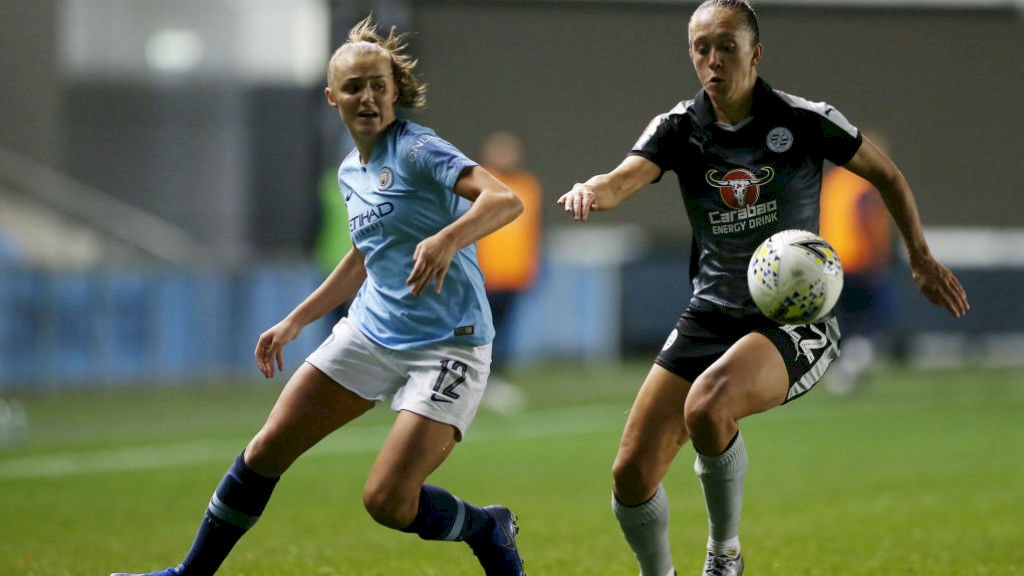
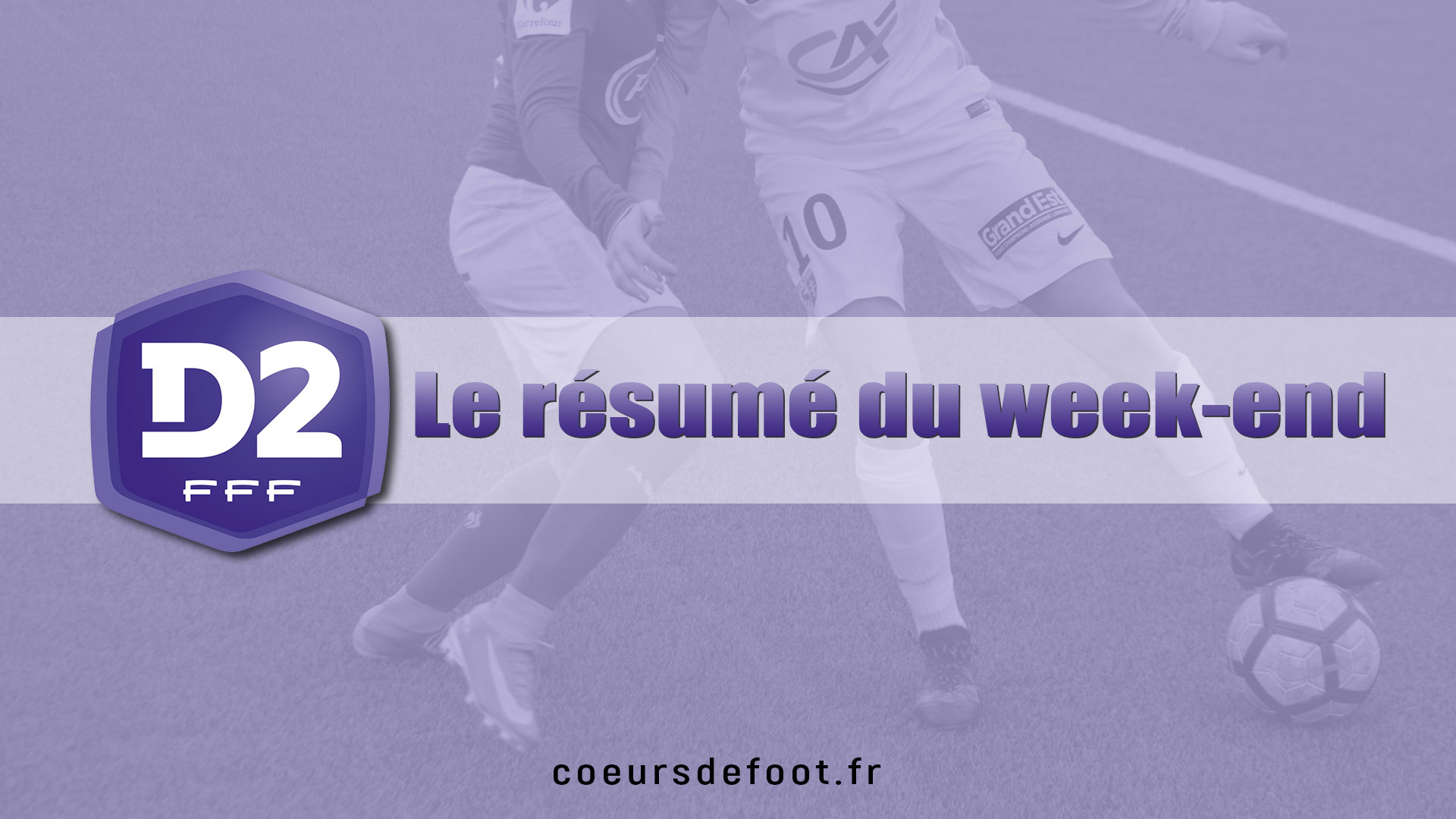
![[UWCL, 1 / 8e back] OL - Ajax (9-0): Lyon qualify for 1/4 after outclassing Ajax](/backEnd/images/article/d30f6b37cf9200d87c3668b1de114da5.jpeg)
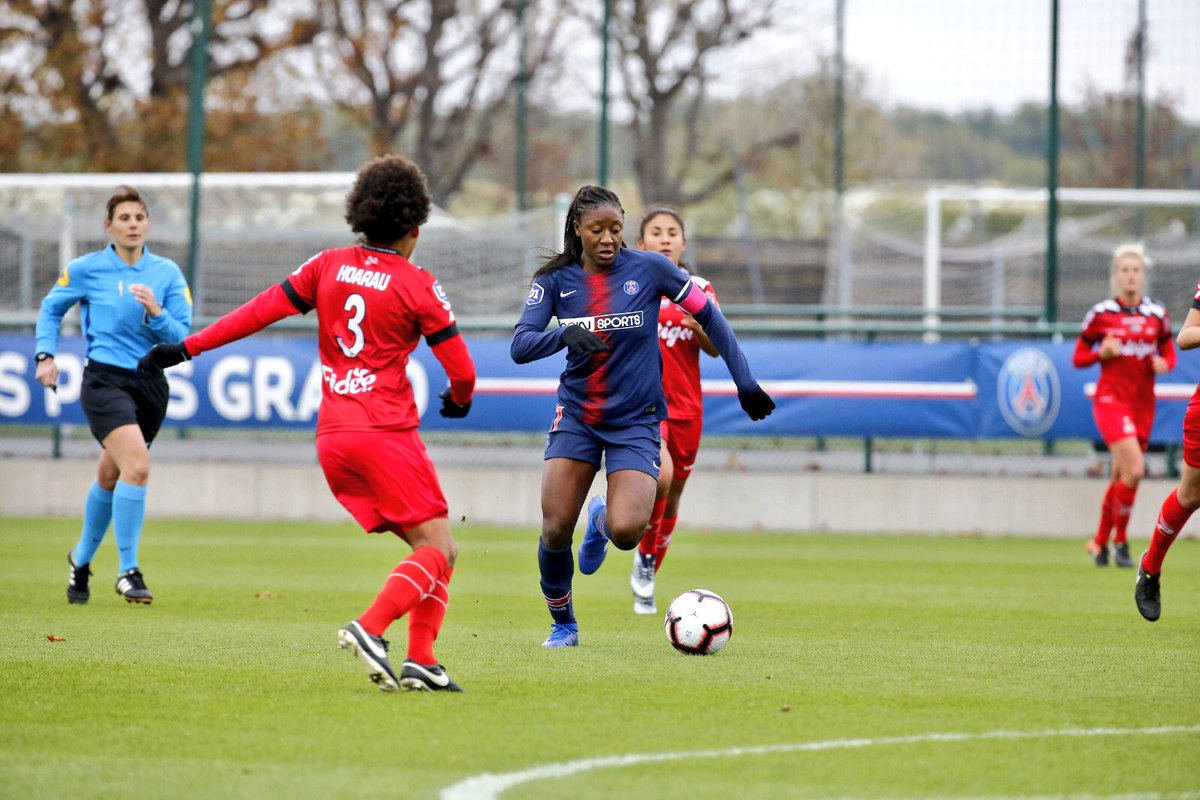
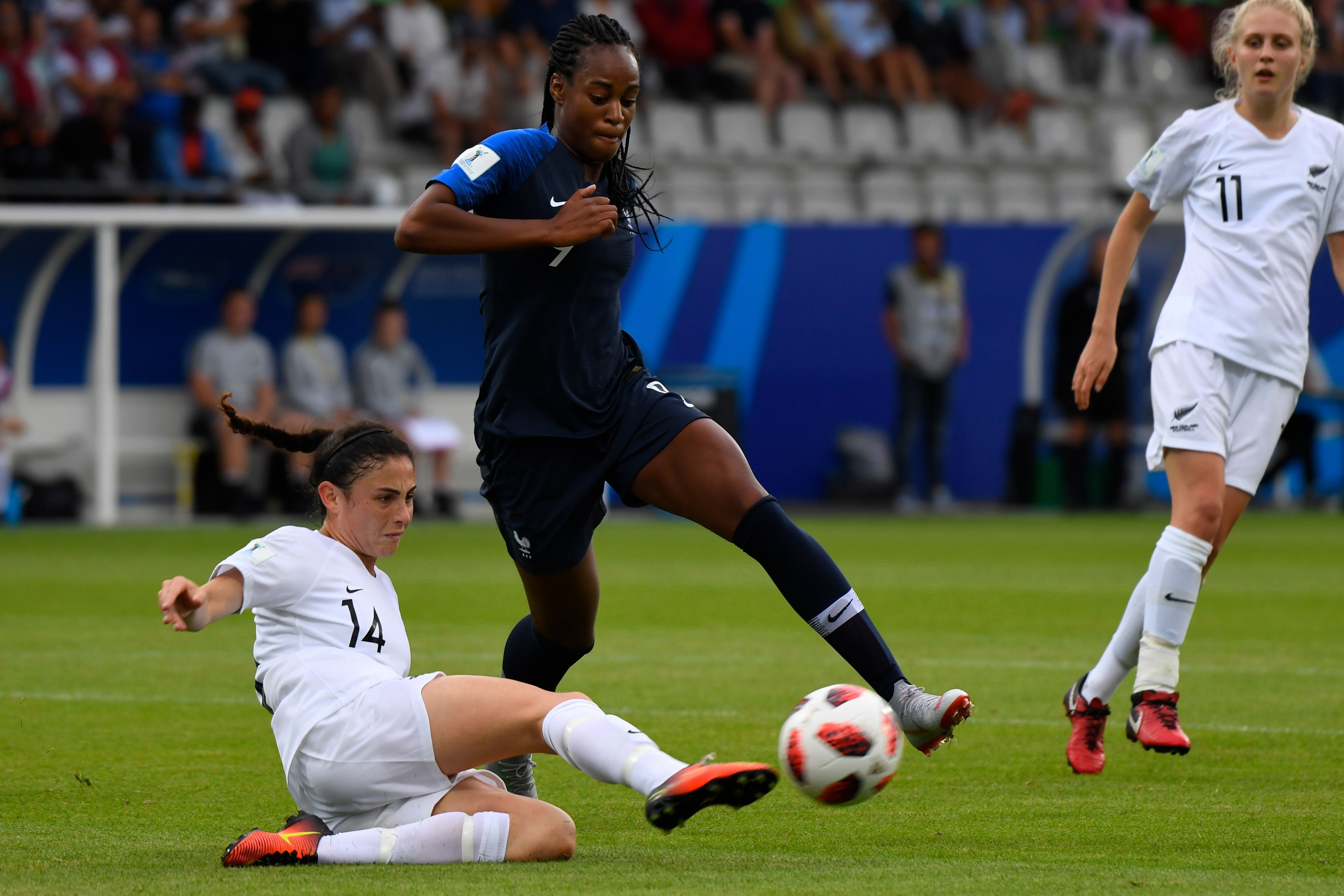

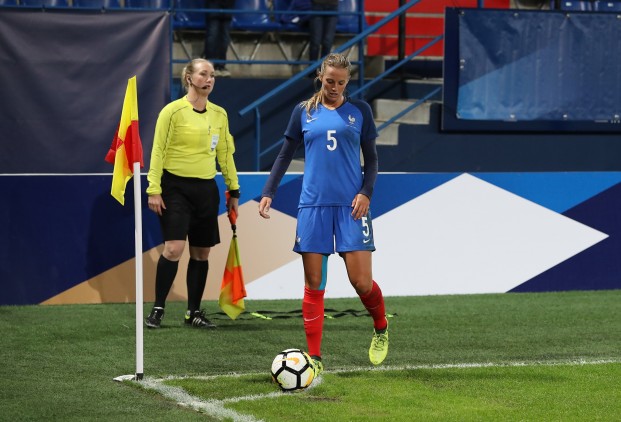
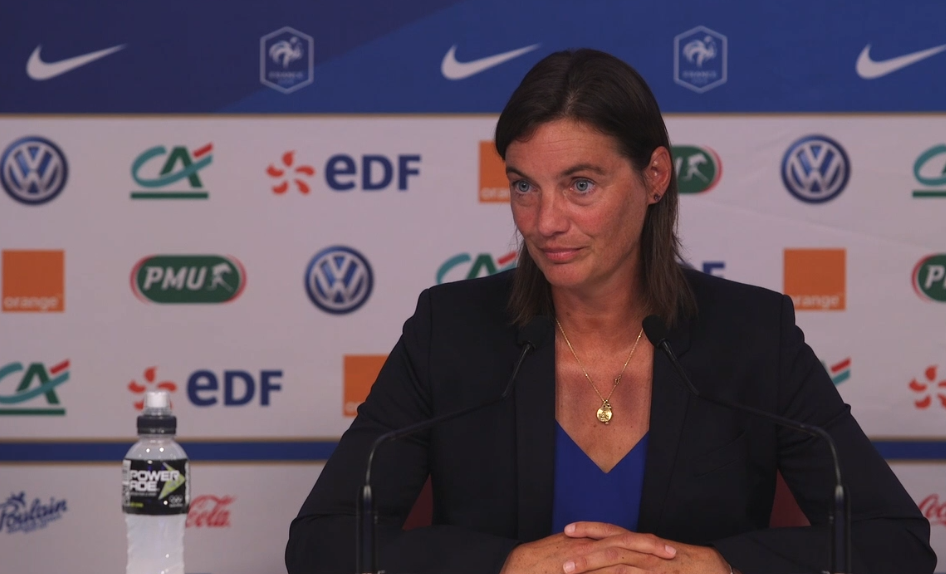

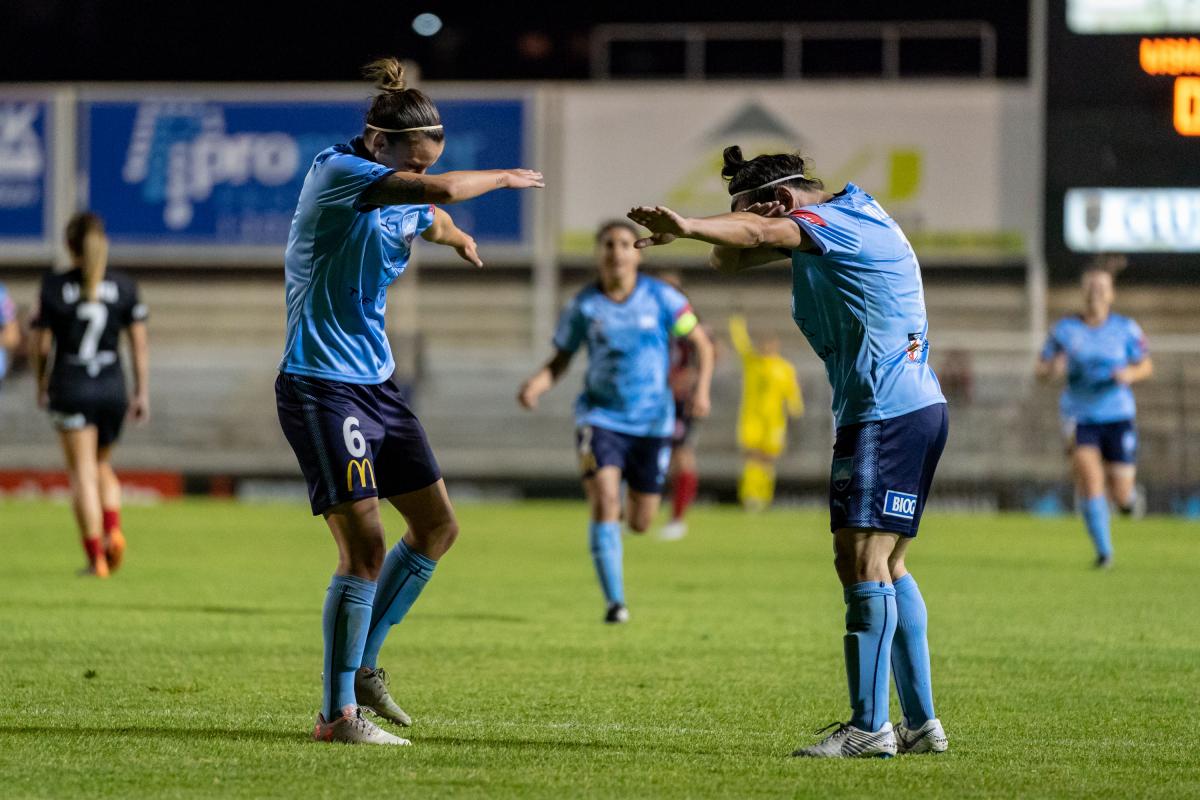
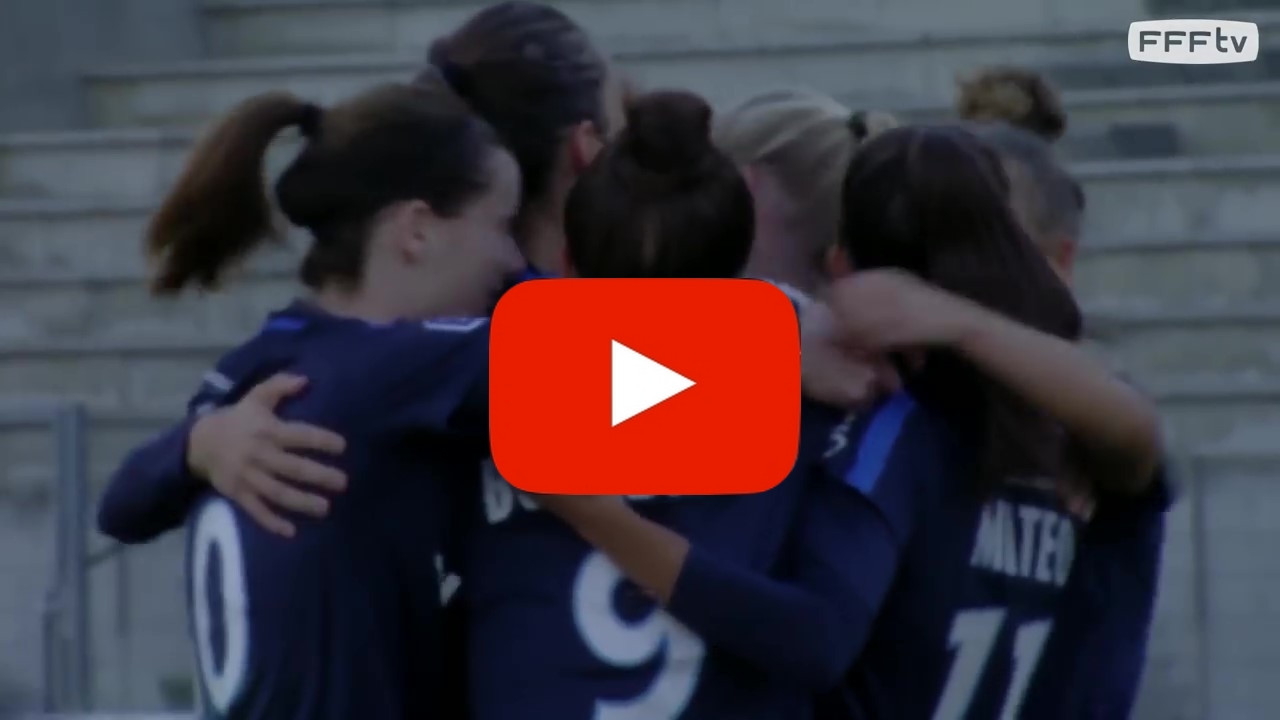
![[UWCL, 1 / 8e back] PSG - Linkopings (3-2): PSG cash, but valid his ticket for 1/4](/backEnd/images/article/3ab0e3eae3ed85022a807d575d8e5711.jpeg)
